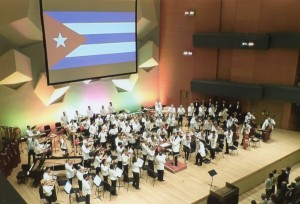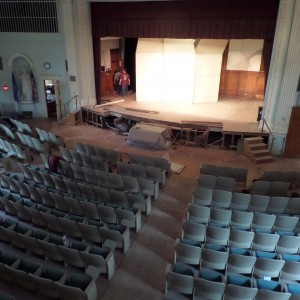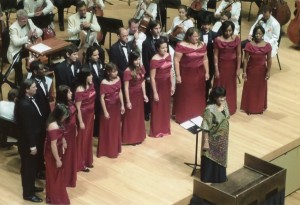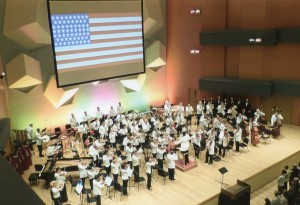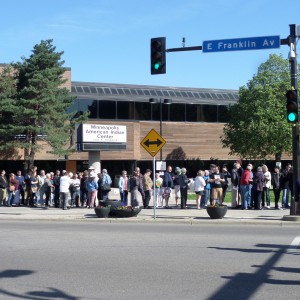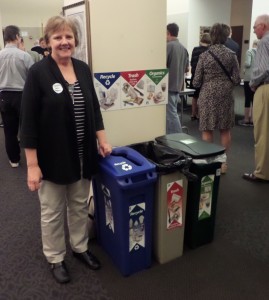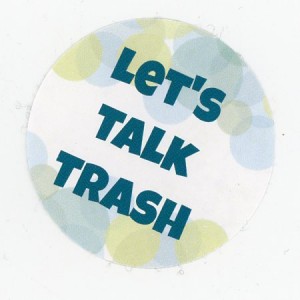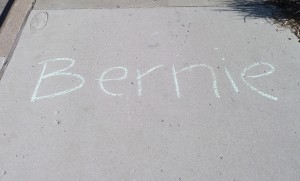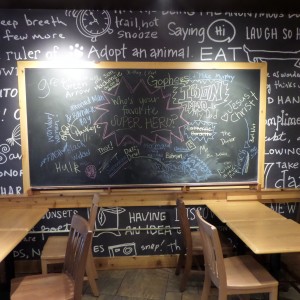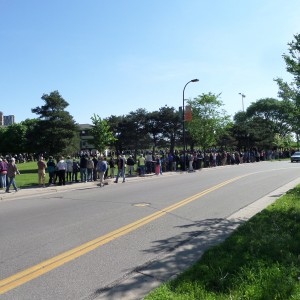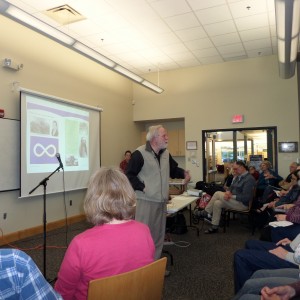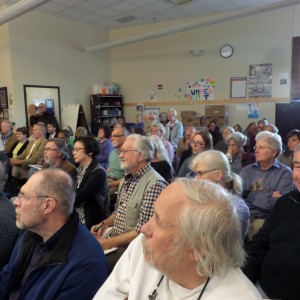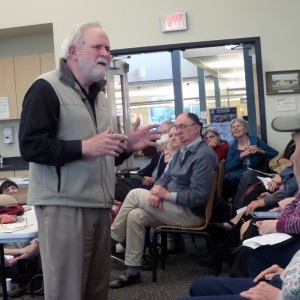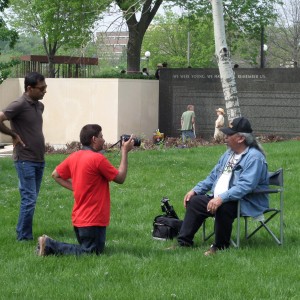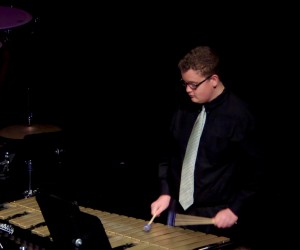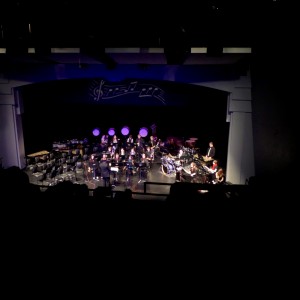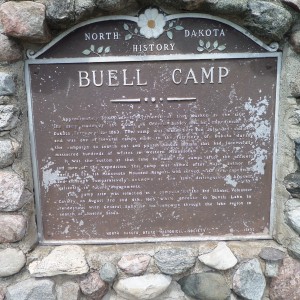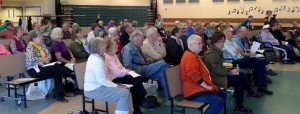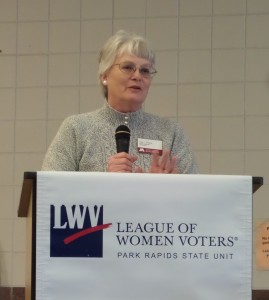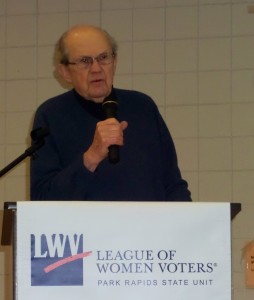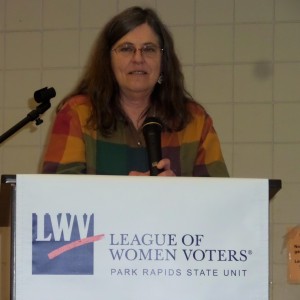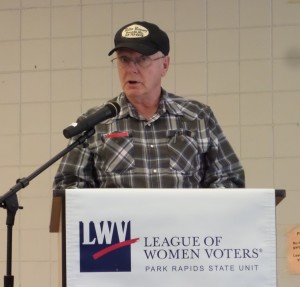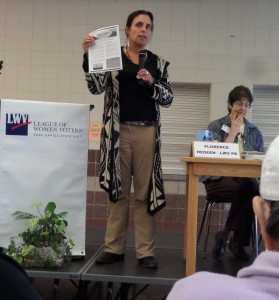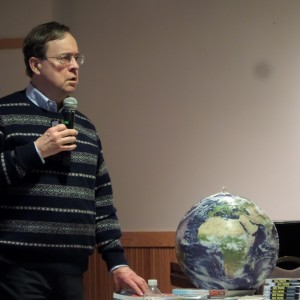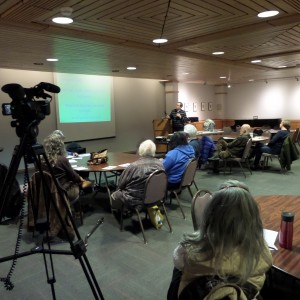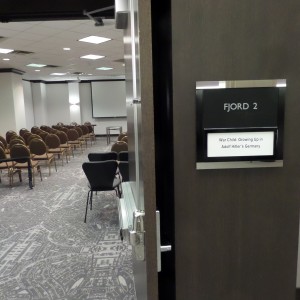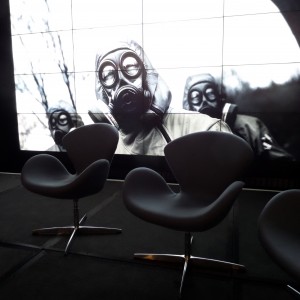#1042 – Dick Bernard: Under Renovation: Two Flags, Two National Anthems, Two Nations, 56 years.
Here is the video we all saw at Orchestra Hall on Sunday afternoon (see below)
(click on all photos to enlarge them)
July 1 found me heading east after a tiring three days in North Dakota. I stopped in Valley City, and decided to refresh by stopping at my alma mater, now Valley City State University, and walk around my campus from 1958-61 before getting back on the freeway. A major renovation of the old auditorium, in progress, which turned out to be accessible to this visitor, caught my eye.
Workmen happened to be testing lighting on the stage at the time I was there. Everything was a mess, as one would expect. One told me that their objective was to keep the auditorium appearance as it had always been. Back in my day, that auditorium was home for any college cultural event. I took photos, as I usually do, never expecting them to become relevant a few days later.
Then came Sunday morning, July 5.
Friend Bill Haring called and said they had two extra tickets to the performance of the the visiting Cuban group Coro Entrevoces, appearing with the Minnesota Orchestra*. Was I interested? No brainer. My wife couldn’t attend; so I asked if my granddaughter Kelly, who’s in chorus, would be interested. Sure enough, so off we went to what was an historic event, a real cross-cultural exchange between the U.S. and Cuba, brought about by a recent trip to Cuba by the Minnesota Orchestra back in May.
The performances, three sets by Coro Entrevoces interspersed with orchestral sets by the Minnesota Orchestra, was phenomenal, electric. During the performance I thought back to that recently visited auditorium in Valley City North Dakota. Back then, nearing the end of my college career in summer, 1961, a program called the Afro-Cuban Review came to the auditorium. It was written up in the college newspaper, the Viking News, on page one, and you can read the release here:
(click to enlarge)
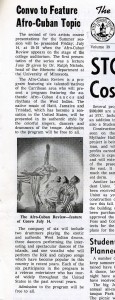
Remember, this was 1961, 56 years ago, and two years earlier revolution had brought Fidel Castro to power in Cuba. The failed Bay of Pigs invasion had happened a couple of months earlier. The Cuban Missile Crisis was down the road a year or so. We were in a war with our nearby neighbor. So, while the program was Afro-Cuban that day, there were no Cubans to be seen. One can never be too careful.
For 56 years that official animosity has continued. Now a welcome thaw is in progress.
We witnessed Sunday, and back in May, part of the beginning of a new relationship between two proud countries, the U.S. and Cuba. The diplomats: musicians and singers.
I’m a proud American, and have never been to Cuba, but the playing of the Cuban National Anthem with backdrop of the Cuban flag from the stage of Orchestra Hall was an emotional event for me, and I’d guess for others in the hall as well.
Yes, the Star Spangled Banner came first, equally rousing, but there was great symbolism present in Orchestra Hall on this pleasant day. It was good to see flags of peace on Sunday, rather than of war; anthems of pride complimenting, not condemning….
Friendship begins with engagement: you have to get to know a person as a person in person.
The same goes for countries. As a single citizen, I applaud what is happening now between Cuba and our country. And we need to continue similar rapprochements with other countries, Iran, North Korea, and on and on.
We are, after all, citizens of one planet, all of us on a single stage, depending on each other for survival.
* – The program notes can be viewed here: Core Entrevoces 7-5-15001

